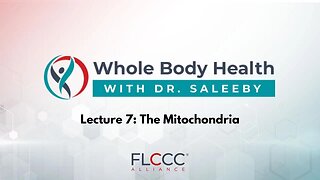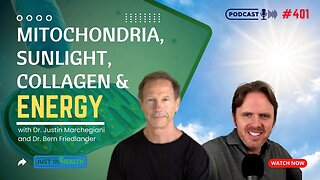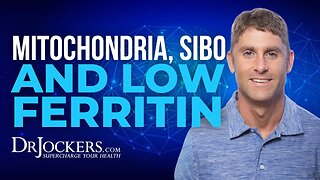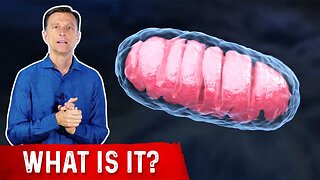5 am Club - Do it! Mitochondria? What is this and what to do!
#Mitochondria are organelles found in the cells of all living organisms.
They are responsible for generating most of the cell's energy, which is used for cellular processes such as metabolism, muscle contraction, and cell signalling.
Mitochondria are made up of two membranes: an outer membrane and an inner membrane. The inner membrane is folded into cristae, which increase the surface area of the membrane and allow for more efficient energy production.
The mitochondria's inner membrane contains the electron transport chain, which is a series of proteins that transfer electrons from food molecules to oxygen. This process releases energy, which is used to create adenosine triphosphate (ATP), the cell's main energy molecule.
Mitochondria are also involved in other cellular processes, such as calcium signalling, apoptosis (programmed cell death), and heat production.
Dietary and lifestyle choices can have a significant impact on mitochondrial health. Some of the positive choices include:
Eating a healthy diet that is rich in antioxidants.
1. Eggs, Meat, Fatty fish, such as salmon and tuna,
2. Avocados
3. Nuts and seeds
4. Olive oil
5. Dark chocolate
6. Green leafy vegetables & Cruciferous vegetables, such as broccoli and Brussels sprouts
7. Fermented foods, such as yogurt and sauerkraut
Some of the negative choices include:
1. Eating a diet that is high in processed foods, sugar, fructose, and unhealthy fats like industrially manufactured seed oils high in omega 6.
2. Being overweight or obese.
3. Having chronic diseases, such as diabetes and heart disease.
4. Exposure to environmental toxins, such as heavy metals and pollutants.
Here are some specific nutrients that are important for mitochondrial health:
Antioxidants: Antioxidants help to protect mitochondria from damage caused by free radicals. Good sources of antioxidants include fruits, vegetables, nuts, and seeds.
Coenzyme Q10: Coenzyme Q10 is a powerful antioxidant that is found in mitochondria. It is also involved in energy production. Good sources of coenzyme Q10 include beef, sardines, and peanuts.
L-carnitine: L-carnitine is an amino acid that helps to transport fatty acids into mitochondria for energy production. Good sources of L-carnitine include beef, chicken, and fish.
Magnesium: Magnesium is a mineral that is essential for many cellular processes, including mitochondrial function. Good sources of magnesium include leafy green vegetables, nuts, and seeds.
Riboflavin (vitamin B2): Riboflavin is a cofactor for the electron transport chain, and it is also involved in energy production. Good sources of riboflavin include dairy products, leafy green vegetables, and beans.
Niacin (vitamin B3): Niacin is also a cofactor for the electron transport chain, and it is involved in energy production. Good sources of niacin include meat, poultry, fish, and whole grains.
Folate: Folate is a B vitamin that is involved in DNA synthesis and repair. It is also important for mitochondrial function. Good sources of folate include leafy green vegetables, citrus fruits, and beans.
Zinc: Zinc is a mineral that is involved in many cellular processes, including mitochondrial function. Good sources of zinc include meat, poultry, fish, and nuts.
Selenium: Selenium is an antioxidant that helps to protect mitochondria from damage. Good sources of selenium include seafood, Brazil nuts, and poultry.
Here are some additional tips for improving mitochondrial health:
1. Get regular exercise. Exercise helps to increase the number of mitochondria in your cells and improve their function.
2. Manage stress. Stress can damage mitochondria, so it is important to find ways to manage stress, such as yoga, meditation, or spending time in nature.
3. Get enough sleep. Sleep is essential for mitochondrial health. When you sleep, your body repairs damage to mitochondria and produces new ones.
4. Avoid smoking and excessive alcohol consumption. Smoking and excessive alcohol consumption can damage mitochondria.
5. Protect yourself from environmental toxins. Exposure to environmental toxins, such as heavy metals and pollutants, can damage mitochondria.
The 5 AM Club is a self-help book that argues that waking up at 5am and using the first hour of your day for self-improvement can help you achieve your goals and live a more fulfilling life.
The book is divided into three parts:
Part I: The Habit Installation Protocol. This part of the book explains the science behind why waking up early is so beneficial and how to create a new habit of waking up at 5am.
Part II: The 20/20/20 Formula. This part of the book describes how to use the first hour of your day to focus on four key areas: silence, visualization, exercise, and learning.
Part III: The 5 AM Club Way of Life. This part of the book provides additional tips and advice for living a more productive and fulfilling life.
The key concepts of The 5 AM Club include:
The importance of waking up early. Sharma argues that waking up early gives you the time and space to focus on your most important goals and activities without distractions.
The 20/20/20 formula. This formula divides the first hour of your day into three 20-minute blocks, which you can use for silence, visualization, exercise, and learning.
The four interior empires. Sharma argues that there are four key areas of your life that you need to balance in order to achieve success: physical, mental, emotional, and spiritual.
The 10X rule. This rule states that you should aim to achieve 10 times your current goals.
According to the book it takes about 66 days to form a new habit. This is divided into three stages:
Destruction (22 days). This is the stage where you are breaking old habits and behaviors that are not serving you. This can be difficult and uncomfortable, but it is essential for creating new habits.
Installation (22 days). This is the stage where you are solidifying the new habit and making it a part of your routine. This is still a challenging stage, but you are starting to see progress.
Integration (22 days). This is the stage where the new habit becomes automatic. You no longer have to think about it, and it is just a part of who you are.
The book also suggests that there are four key steps to creating a new habit:
Identify the habit you want to create. What is the one thing you could do that would make a big difference in your life?
Make a plan. When and where will you do the habit? What will you need to do it?
Take action. Do the habit, even if you don't feel like it.
Track your progress. Keep track of how often you do the habit and how you feel about it.
If you follow these steps, you will be well on your way to creating a new habit that will change your life.
Here are some additional tips for creating new habits:
- Make it easy for yourself. The easier it is to do the habit, the more likely you are to stick with it.
- Set realistic expectations. Don't expect to change your entire life overnight. Start small and gradually build up your habit.
- Be patient. It takes time to create a new habit. Don't get discouraged if you slip up. Just keep going.
- Find a support system. Tell your friends, family, and coworkers about your goal. Having people to support you will make it more likely that you'll stick with it.
-
 8:07
8:07
My NMN Experiment
1 year ago $0.01 earnedNO Exercise | But Improved Mitochondrial Health & Muscle Endurance (Urolithin A)
44 -
 35:24
35:24
FLCCC ALLIANCE
7 months ago $0.17 earnedWhole Body Health Episode 7: The Mitochondria
597 -
 52:57
52:57
Just In Health
8 months agoMitochondria, Sunlight, Collagen, and Energy | Podcast #401with Dr. Bern Friedlander
9613 -
 33:56
33:56
Dr David Jockers
1 year agoQ & A on Mitochondria, SIBO, Low Ferritin, High Cortisol, and Joint Health!
59 -
 13:48
13:48
LiliasAhmeira
8 months agoHow to Boost Your Mitochondria and Grow Old Disgracefully (Part 1)
431 -
 3:51
3:51
Just In Health
8 months agoThe Secrets of Mitochondria: Boost Your Energy!
26 -
 4:57
4:57
Dr. Eric Berg
2 years agoMitochondrial Protector: AMPK
26 -
 16:45
16:45
BellyProof Body Transformation
8 months agoLook Younger, Reverse and Slow Ageing (Club Mitochondria)
12 -
 4:16
4:16
Doctors To Trust
1 year agoRICHARD JOHNSON 4 | Fructose damages mitochondria:-ATP blocked by uric acid: generates body fat!
33 -
 5:53
5:53
Sun Fruit Dan
1 year agoHow Methylene Blue Optimizes Mitochondrial Function - (Science Based)
4151